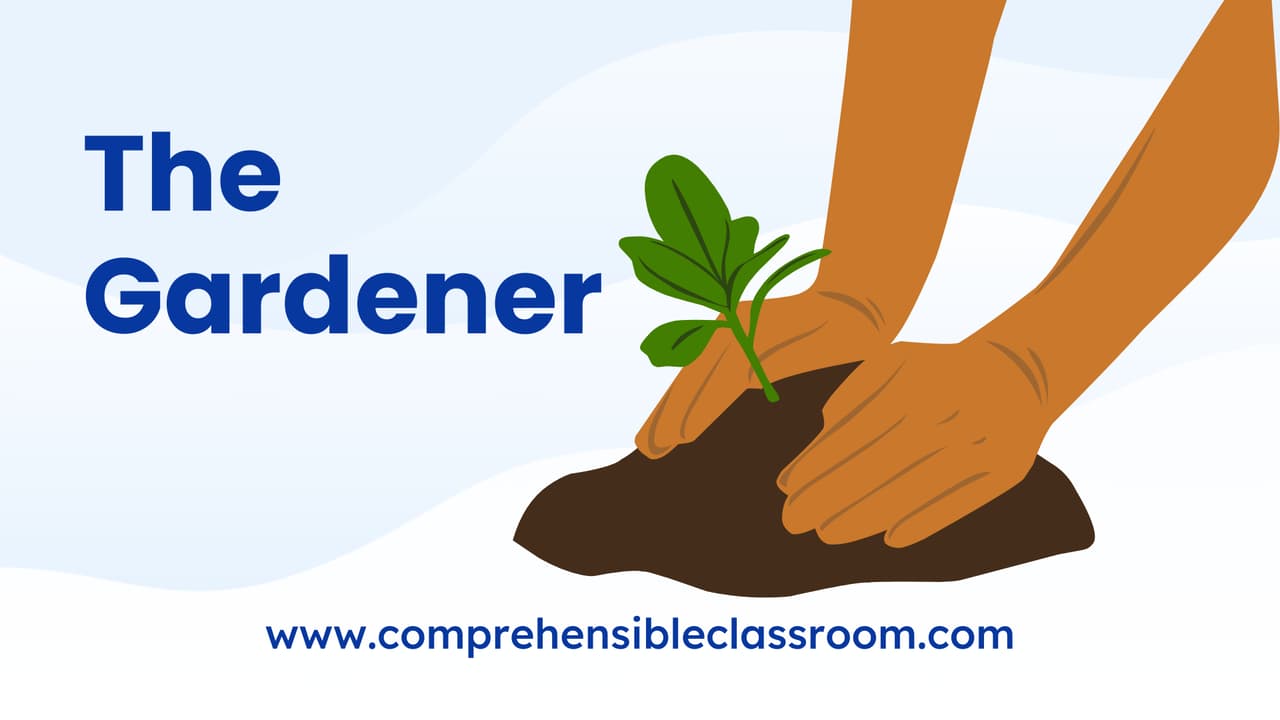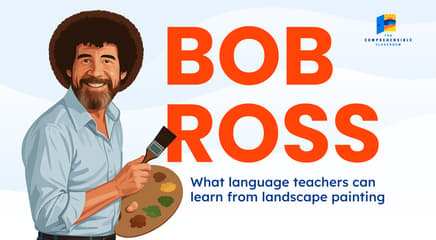Measure twice, cut once. A good carpenter can make a plan, follow it step by step, and know exactly what the finished product will look like. Every cut, every joint, and every measurement is precise. A carpenter knows that if they do it right, they get EXACTLY what they expect. Follow the blueprint perfectly, drill and hammer, and recut a board if necessary. The carpenter is always in control of the finished product.
Language teaching? It doesn’t work like that. You are not a carpenter. You can’t build your students’ proficiency like you build a bookshelf.
You are a Gardener.
In The Anxious Generation, Jonathan Haidt made this metaphor about parenting, and I propose that it applies to language teaching, too.
You see, no two plants grow exactly the same way or at the same rate. A Gardener cannot control exactly what their plants will look like or how they will grow. What the Gardener can do is provide optimal conditions for growth. A Gardener plants seeds (provides input), waters the seeds (more input!), weeds (ensures students understand), provides the right amount of sun or shade (tends to emotions and connection), and… ultimately… hopes for the best!
When flowers bloom or plants bear fruit, it might not be what the Gardener had hoped for, or it might be more than the Gardener had hoped for. Sometimes, we don’t know why some seeds sprout and some don’t. A Gardener cannot know exactly when a seed will germinate. Unlike a carpenter, who can make a plan and a timeline and know exactly what the finished product will look like and when, all the Gardener can do is provide the right inputs, optimize conditions for growth, and look forward with anticipation to what will develop. When a plant doesn’t grow like the Gardener expects, they can’t hammer on new leaves or replace undesirable branches. Even the Gardener’s best efforts to promote the kind of growth they want come without guarantees!
When you picture yourself in your classroom, teaching your students, picture yourself as a Gardener. And, when you catch yourself trying to approach teaching like a Master Carpenter (“Recut that board, it’s ¼ inch off!”), stop yourself. You aren’t a Carpenter, and your students aren’t a carpentry project. You are a Gardener, and you are well equipped to help your students grow proficiency!
--------------------------
If the ideas in this post resonate with you, you are welcome to share this metaphor with credit to Martina Bex from The Comprehensible Classroom, along with a link to the blog post or video. Learn more about giving credit here.




